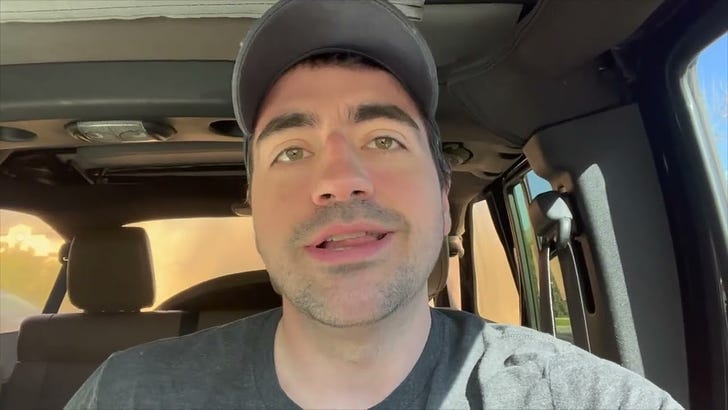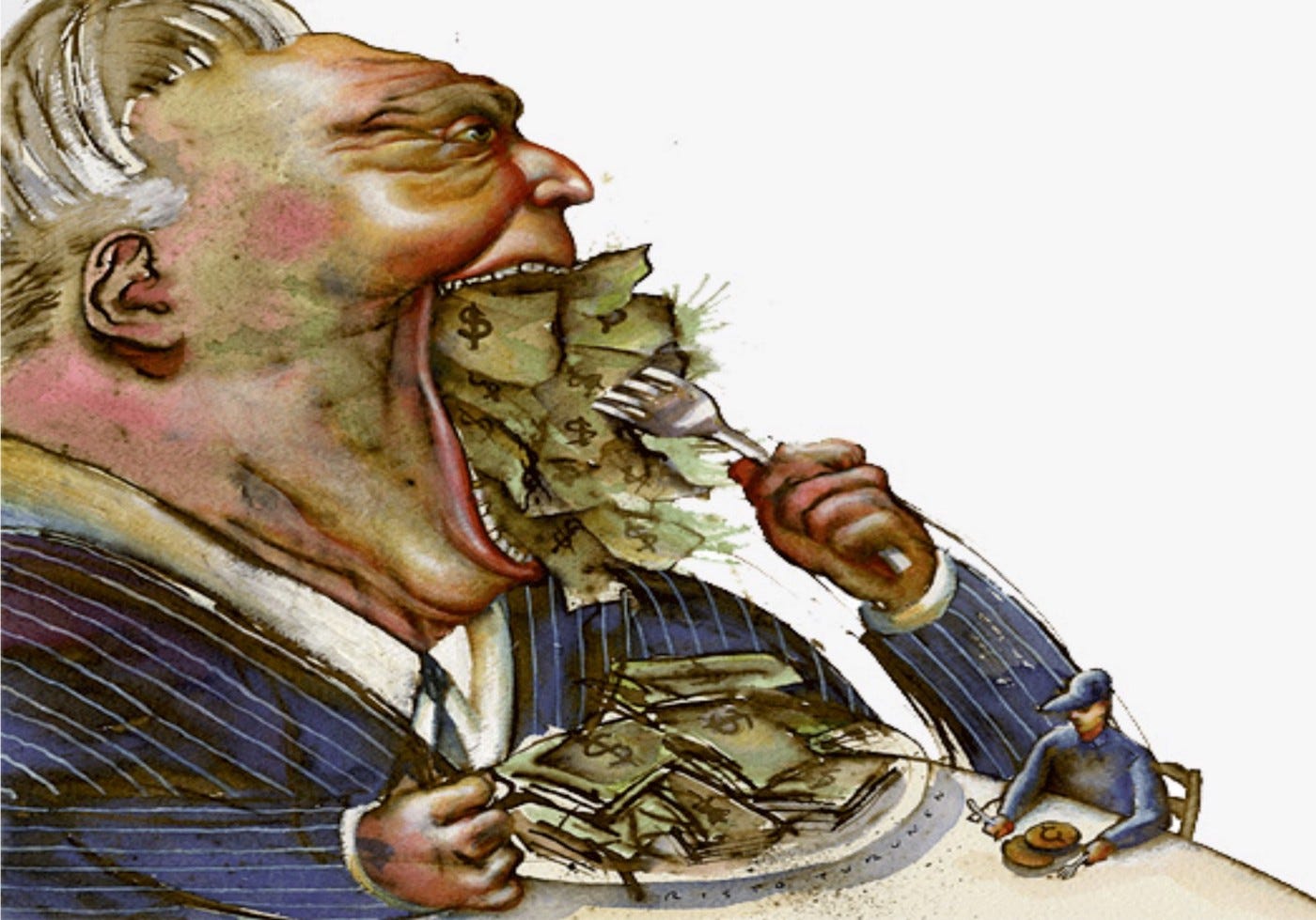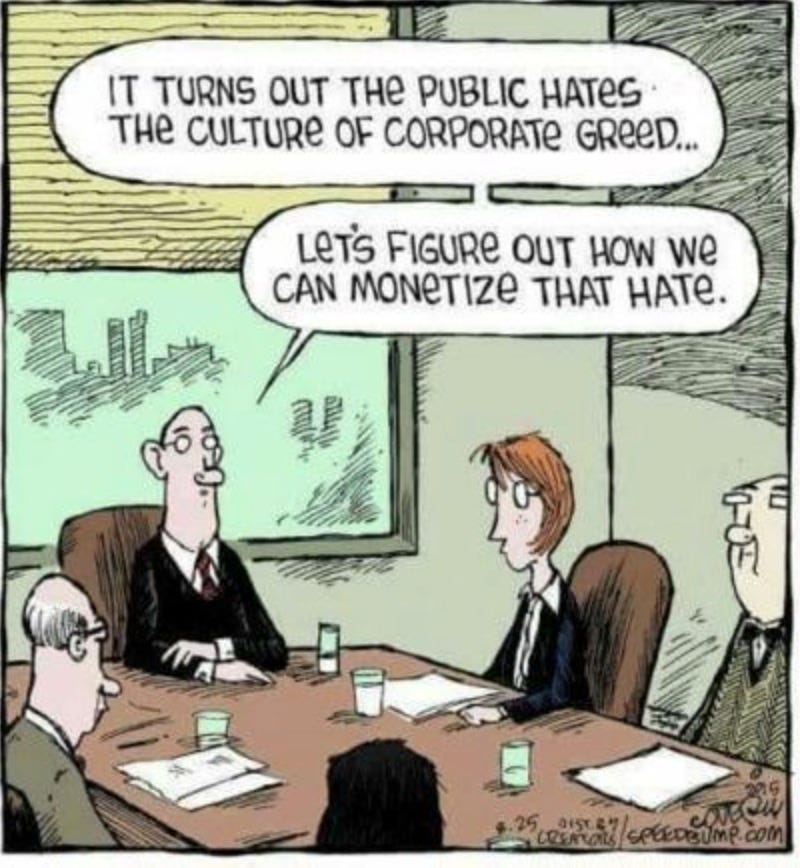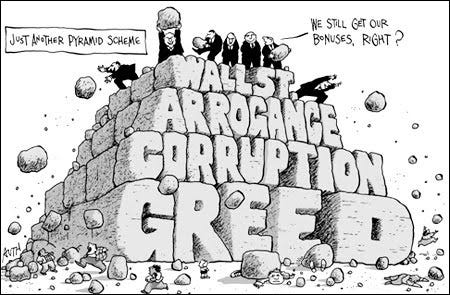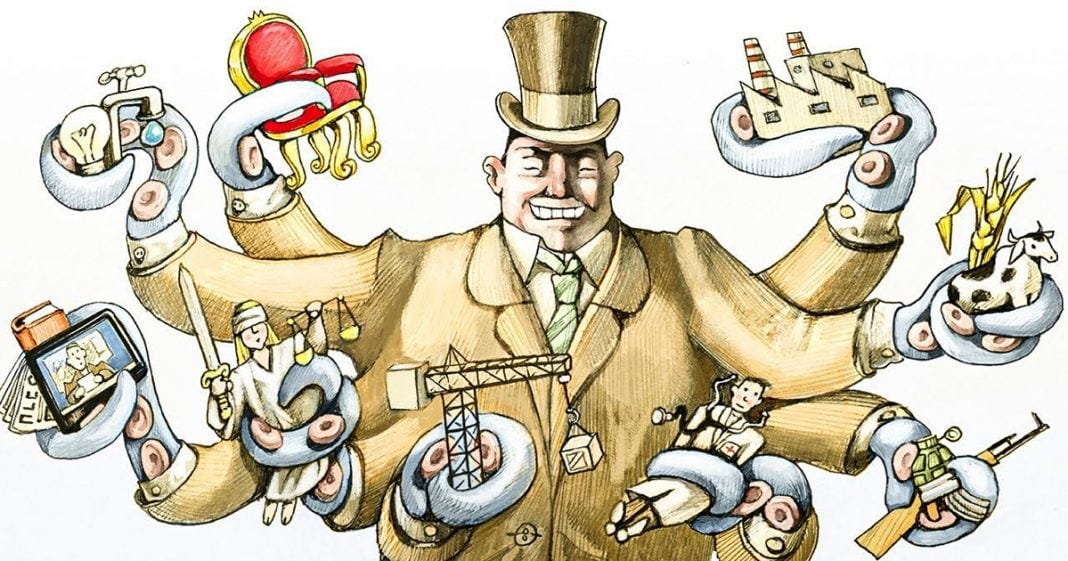"What Is The Value Of The Entire Life And Livelihood Of One Rust Belt Trailer Person?"
Or any human being whose life and livelihood have just been doused in a layer of toxic chemicals
I measure men by the content of their character, not the color of their skin, and I find all of them are assholes.
Sherman Alexie, Flight
While the aftermath of the train derailment in East Palestine, Ohio, drags on, the one thing that seems to get lost in the Sturm und Drang is the truth that lives and livelihoods have been uprooted. And those aren’t things easily replaced. Especially when know one knows how long the situation will continue or how it will be resolved.
So far, at least from what we know, no one has died, but it’s still early. It’s possible that some of the effects of the toxic chemicals spilled into the water, onto the ground, and into the air may not be known for years. And who will hold Norfolk Southern liable for that down the road?
Initially, it looked as if Norfolk Southern’s interest was in getting it over with as soon as possible. The idea was to pay the townspeople each a $1000 “convenience fee,” as if that would magically and immediately make everyone whole. But how do you value a life, a livelihood, a home- some of which have been rendered unlivable or unviable? How is one supposed to support oneself and one’s family? Where does one get clean water or breathe clean air when they’ve been befouled?
The problem with capitalism is that it’s not equipped to deal with what happens when it breaks things. And it breaks things all the time. When I lived in Houston, residents of the Manchester neighborhood, which was overwhelmingly Hispanic, were located next to a chemical plant. It was not uncommon for residents to wake up to their cars covered in a fine layer of dust, the composition of which no one understood.
The North Stars & Cowboy Bars paywall launch special:
Subscribe to an annual plan- $50.00- before 3.15.23 and receive a 20% discount!
The city of Houston paid it no mind because the plant paid a ton of money in taxes, and the neighborhood had little political clout. But when children started getting sick, the neighborhood began figuring out how to gain political power. There are Manchesters all over the Houston area, just as there are in every city with an industrial base. They’re neighborhoods where people are mainly poor, non-White, immigrants, and politically unorganized. You can bet that chemical plants aren’t going to be built in Houston’s exclusive River Oaks neighborhood, where CEOs, professional athletes, and the rich and accomplished live.
East Palestine is predominantly White, but it’s rural, not affluent, nor is it politically influential. Norfolk Southern probably thought they could buy their silence and complicity with $1000. It was an arrogant and silly mistake, especially when you consider the scope of the damage done.
One can fight evil but against stupidity one is helpless.
Henry Miller, Sextet: Six Essays
The local sport quickly became finger-pointing. Who was to blame? Joe Biden? Pete Buttigieg? Maybe even Donald Trump, since his administration relaxed the safety regulations that might have prevented this sort of accident. But while casting blame might seem like fun, it misses the point. The real culprit is what’s fueled every tragedy, accident, and nightmare going back to the beginning of the Industrial Revolution:
Corporate greed.
Yes, the culprit is the same in the search for ever-greater profits- getting more from less, greater efficiencies, lower costs, faster, better, smarter. Corporate greed has been behind every accident, every fuck-up, every disaster that’s cost lives, damaged property, polluted waterways, contaminated land, etc., etc.
The drive to squeeze more from less has pushed humans and machines to the edge of safety, reason, and beyond. Could the accident in East Palestine have been prevented? Of course, but that would have cost money, delayed delivery, and meant that stockholders and senior management would’ve made less money.
Running a railroad, or any shipping and delivery system, has inherent costs. Operating safely means that certain costs are baked in because certain things must be done to ensure that people and the environment aren’t harmed along the way.
But…corporate greed.
Those two words can have a significantly deleterious impact on safety. No one wants to spend more money on operating costs than necessary, and tightening bolts can seem superfluous. But what happens when a train is rolling at 60MPH, and those bolts begin to come loose because they weren’t properly checked? Or because they’re still being used beyond their recommended lifespan? What about the metal fatigue that can set in and put an entire trainload of who-knows-what at risk? For want of a few 75-cent bolts and the time of a maintenance worker to tighten them….
But, by all means, go ahead and blame Joe Biden and/or Pete Buttigieg if that makes you feel better.
Doing the right thing is too often just another cost of doing business that gets sacrificed when companies decide the time has come for belt-tightening measures. Essential maintenance can be stretched out just a bit in the name of cutting costs. If safety inspections had previously been required every two months, requiring them every three months shouldn’t be a problem, right?
Then how long before those three months become four, then six? Then, before you know it, the bean counters at headquarters are thinking, you know, we haven’t had a problem since we’ve stretched out the safety inspections. So why not limit them to once a year? That way, we’ll spend one-sixth of what we previously spent on inspections. Then, of course, the “safety” part of the equation will get lost- until a disaster like East Palestine happens, and the finger-pointing begins.
Remember Chernobyl? No, corporate greed wasn’t at the root of the Communist ethos responsible for the disaster, but it was the same problem with a different name.
Corporate greed. It will always take precedence over safety or any other critical aspect of operations intended to keep people from harm…until an accident happens and people are harmed. Then questions will be asked. Who authorized the cuts in safety inspections? Why are we spending less on maintenance? Why are we spending so little on critical wear-and-tear parts? Who can we blame? Who can we hang out to dry? Who will we leave twisting in the wind to bear the blame as the rest of us cash our yearly bonuses and buy another vacation home?
It’s all fun and games when you’re tap-dancing on the edge of the razor blade. It’s when you slice yourself and start bleeding that the second-guessing begins. Corporate greed operates on the premise that everything will proceed smoothly and indefinitely, come what may. Therefore, we’ll put as little into it as possible to get as much out of it and make our shareholders and senior management happy.
Then, when something goes wrong, we’ll blame it on a low-level manager in East Bumfuck, Kentucky, and sacrifice him or her to make the press and the activists happy. If that doesn’t work, we’ll keep tossing low-level flunkies onto their swords until the bloodlust of the baying wolves is satisfied. Then, when their fickle attention span moves on to the next tragedy, we’ll pick up and continue on as we always have.
Such is the way of the capitalist world.
The small and insignificant townspeople of East Palestine will continue to cry and whine, but soon no one will be left to hear them. The media circus will have decamped elsewhere in search of their next fresh story, and the townspeople will be left to deal unassisted with their fresh new Hell.
Thus capitalism continues to pick them up and put them down. And corporate greed wins, as it always does.


